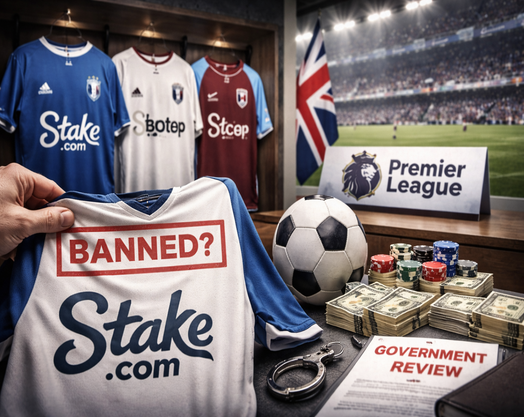- Casino News
- USA News
Koi Nation Project Sparks Casino Controversy in California
Gaming Project Under Fire
The Koi Nation of Northern California won a major victory in January when the U.S. Department of the Interior (DOI) approved its $600 million casino and hotel development near Windsor. But that green light has done little to clear the road ahead.
In the months since the approval, lawsuits have piled up. Critics range from powerful tribal neighbors to the state of California itself, all raising concerns about how the decision was made—and what it could mean for tribal sovereignty and gaming across the U.S.
A Surprise Decision in the Final Days of Biden’s Term
The Koi Nation’s land-into-trust application was one of several fast-tracked in the closing days of President Joe Biden’s administration. DOI Secretary Deb Haaland signed off on multiple tribal projects, including some off-reservation developments—an action that departs from longstanding federal precedent.
Off-reservation approvals are rare and often controversial. Yet on January 13, Haaland backed the Koi Nation’s plan to build a major casino resort: 400 hotel rooms, more than 2,700 slot machines, and over 500,000 square feet of gaming space. If completed, it would be one of the largest tribal casinos in the country.
The Koi sought approval through a “restored lands” exception, arguing the Windsor-area land was historically tied to the tribe. Though federally recognized in 1916, the Koi were displaced from their original parcel in Lake County and formally restored in 2000 after decades of bureaucratic error.
The DOI sided with their claim. But many others didn’t.
Opposition from Other Tribes
FIGR sued before and after the DOI’s decision, alleging the Koi’s historical claims were shaky and that the approval process bypassed required scrutiny. FIGR Chairman Greg Sarris warned the ruling could lead to unchecked casino expansion and undermine tribal sovereignty.
Three other tribes—Dry Creek Rancheria, Cloverdale Rancheria, and Lytton Rancheria—filed their own suit in February. Lytton Chairperson Andy Mejia called the DOI’s decision “a political maneuver” that disrespected local tribes and risked weakening federal protections for tribal land.
The state of California added to the legal firestorm in May, when Governor Gavin Newsom’s office filed suit challenging the DOI’s process. Like the tribes, state officials disputed the validity of the restored lands exception and said the DOI acted “arbitrarily and capriciously.”
Local leaders in Sonoma County also weighed in. The Board of Supervisors and the town of Windsor previously passed resolutions opposing the project, citing concerns over fire risk and zoning laws. Supervisor Lynda Hopkins wrote that the proposed casino would sit in an area meant to restrict commercial development.
Koi Nation Defends the Project
The Koi Nation has defended the DOI’s ruling in court filings, calling the decision “not a close call.” The tribe argues it has deep historic ties to the region and that the project represents an overdue opportunity for economic growth and cultural restoration.
Opponents of the Koi project point to another recent DOI reversal as reason for hope. Earlier this year, the department rescinded a similar last-minute approval for the Scotts Valley Band of Pomo Indians, who had planned an off-reservation casino in Vallejo. That approval was revoked in March pending further review, prompting a lawsuit from the tribe.
FIGR is watching closely, and some observers believe the tribe’s shift in political donations may be part of a broader strategy. Known for its support of Democratic causes, FIGR has redirected millions to Republican groups this year—at a time when Republicans control Congress and DOI Secretary Doug Burgum is also a Republican. “We give to causes we believe in regardless of political affiliation,” Sarris said, adding that the tribe remains committed to tribal sovereignty and environmental stewardship.
Their claims of historic connection are flawed and… would set a dangerous precedent for all Indian Nations.
What Comes Next
For now, the future of the Koi Nation’s casino remains uncertain. Federal courts will likely decide whether the DOI overstepped in granting the land trust. If the approval stands, it could set a precedent for other tribes with limited land bases to pursue similar off-reservation projects.
But if it’s reversed, it may reinforce existing limits—and draw new lines around what qualifies as tribal land in the modern era. Either way, the outcome is likely to shape the future of tribal gaming policy well beyond Sonoma County.






